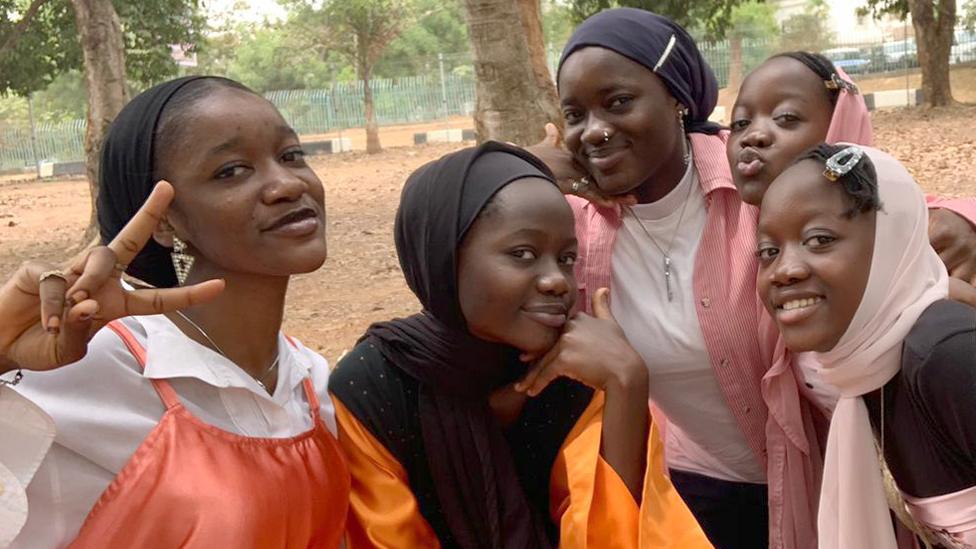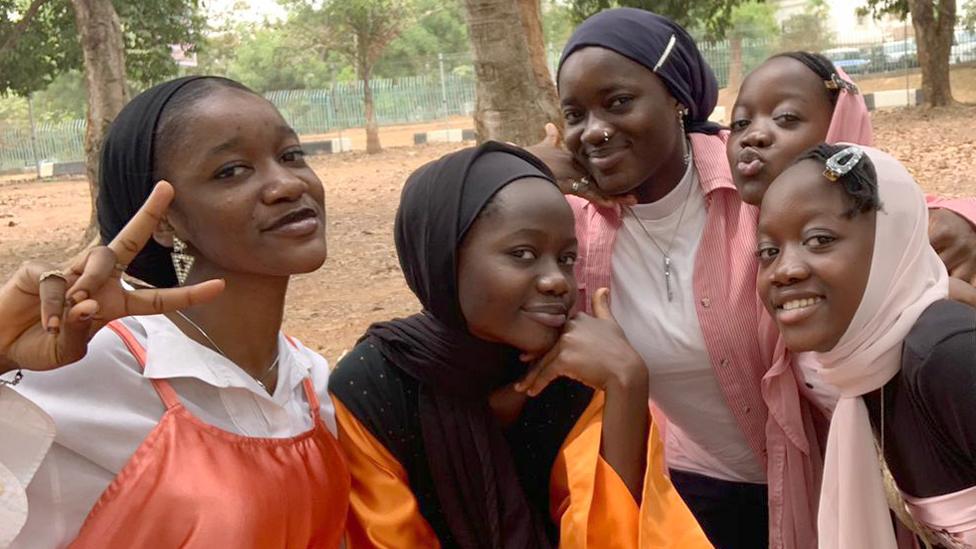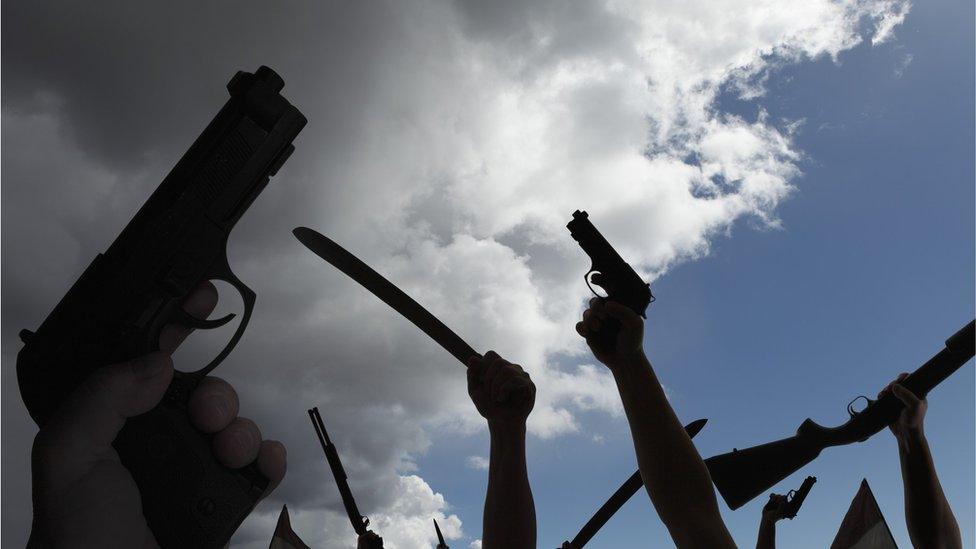Bwari kidnapping: Nigeria police secure release of sisters taken from Abuja
- Published

Nabeeha, pictured second from left, was killed by the kidnappers
Nigerian police say they have successfully rescued five sisters who were held hostage after being kidnapped in the country's capital.
The girls were freed in a joint police-army operation in a forest in northern Nigeria on Saturday night.
They were taken from their home in Abuja earlier this month, along with another sister who was later killed.
The kidnappers had demanded a ransom for their release, but the statement made no mention of one being paid.
Nigerian police said the girls had been reunited with their family following the operation, which took place near the Kajuru forest in Kaduna State at around 23:30 local time (22:30 GMT) on Saturday.
The six sisters, aged from the early teens to 23, were taken hostage alongside their father, Mansoor Al-Kadriyar, on 2 January at the family home in Bwari, a suburb of Abuja.
Witnesses said the girls' uncle ran to find help but was ambushed and killed, as were three police officers.
The kidnappers released Mansoor on the condition he raise a large ransom, but his 21-year-old daughter, Nabeeha, a final year university student, was then killed as a warning, according to a family member who spoke to the BBC on condition of anonymity.
Kidnapping has become rife in Nigeria, with hundreds of people abducted in recent years, largely by criminal gangs who see it as an easy way to make money. It has been particularly bad in the north-west of the country.
The case of the Al-Kadriyar sisters prompted widespread anger in the country, with many arguing that the kidnapping emergency has continued despite government promises to bring it to an end.
First Lady Remi Tinubu urged security agencies to "intensify their efforts" to end the kidnapping and security crisis, and demanded a "swift return of the Al-Kadriyar sisters".
The ransom for the girls' return was set at 65m naira ($68,000; £53,000), leading to many Nigerians donating to a crowdfunding initiative.
However, Defence Minister Mohammed Badaru Abubakar urged people not to contribute towards the ransom, saying it would "only worse the situation".
"We believe we have to stop - as painful as it is. We have to stop responding to payment on ransom. If we stop, over time the kidnapping will not be profitable and they will stop," he said.
No matter how desperate the circumstances, Nigerian law prohibits the payment of ransom money. However, many victims pay up because they do not trust authorities to secure the release of their loved ones.
There has now been an outcry that the insecurity has reached the capital, prompting Abuja's police force to launch a special squad to tackle the kidnapping gangs.
Mr Abubakar said he believed operations against the gangs elsewhere had forced them to move to areas near the capital.
"The security agencies are working very hard to push them out and block the movements and finish them off once and for all," he said.
You may also be interested in:
Nigeria child abduction: Kidnappers demand millions for a child's life
- Published18 January 2024

- Published26 May 2022
